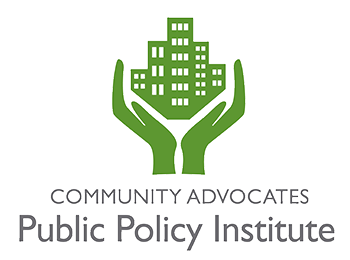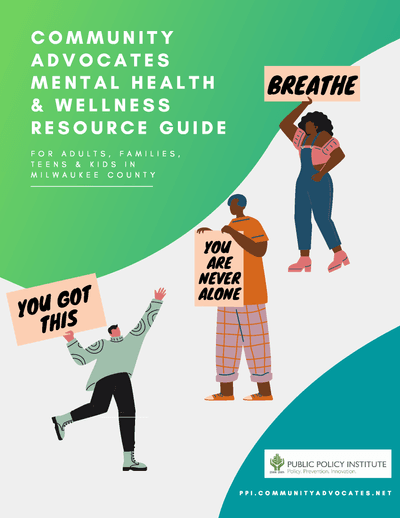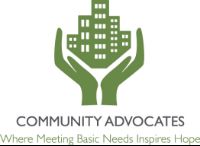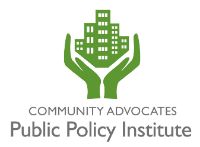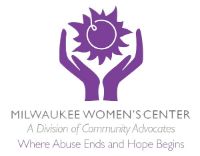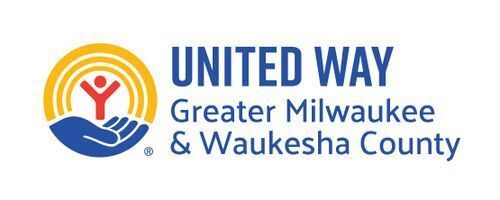Youth & Family Mental Health and Wellness Resources

Talking with children and teens about topics like mental health, substance use, or trauma isn’t always easy, but you don’t have to do it alone. Whether you’re a parent, guardian, educator, or advocate, having access to the right tools can make a world of difference. This collection of resources is designed to support youth and families by providing guidance, education, and strategies to help foster resilience, emotional wellbeing, and open conversations.
Want to add a resource? Contact us.
-
The Department of Public Instruction released the 2023 Youth Risk Behavioral Survey Summary Report showing Wisconsin students continue dealing with unprecedented mental health challenges while having fewer supports at school and at home.
-
This fact sheet is to inform parents how to effectively talk to their young adult about the risks of underage drinking.
-
From the National Child Traumatic Stress Network, tips for parents on how to help young children, older children, and adolescents after a traumatic event.
-
Discover the impact of your drinking in your unborn baby, including risk of miscarriage or fetal alcohol spectrum disorders.
-
The American Psychological Association (APA) has released an updated resource to help families navigate the digital landscape, offering insights on setting boundaries, fostering critical thinking, and encouraging mindful media consumption.
-
The City of Milwaukee’s Health Department created the Birth Outcomes Made Better (BOMB) Doula Program to support healthy babies in the City of Milwaukee. Their teams empower families with the guidance and education necessary for a healthy pregnancy and beyond. The program is available to all City of Milwaukee residents who are at or before 30 weeks pregnant, no insurance required. Doulas work with families during the prenatal period, through birth, and for 12 weeks postpartum. They are now accepting clients for 2025.
-
Blanket of Love Program is a prenatal and parenting education program for young women, their spouses, and friends or families. Created with the Be Healthy, Be You in Wisconsin at Ascension, the program creates a community of support through a welcoming meal, an educational presentation and time for sharing with staff members and other members of the group. Call 414-793-0328 for the schedule and class locations.
-
Children’s Wisconsin’s Craig Yabuki Mental Health Walk-In Clinic provides same-day care for children and teens (ages 5-18) experiencing urgent mental health issues. The clinic is designed to offer an alternative to traditional urgent care and emergency room services. Families can walk-in or make a reservation online.
-
Have you checked in lately with your mental health? Feeling blah and not sure where to get started? Find out how you're doing mentally and emotionally in the areas of flourishing, anxiety, and depression.
-
Empowering Families of Milwaukee (EFM) uses evidence-based models to provide long-term home visitation to families. The focus of EFM is pregnant people and their children. The City of Milwaukee Health Department’s program facilitates access to health, social, and child development support for families through Public Health Nurses and Social Workers.
-
The City of Milwaukee Health Department is working with Froedert & the Medical College of Wisconsin to introduce the Maternal Mobile Clinic. The Maternal Mobile Clinic provides convenient and compassionate care directly into our communities. Services include prenatal exams, postpartum exams, family planning, vaccine administration, STI screening, and more.
-
Learn more about promoting resilience and emotional wellbeing in youth with these resource sheet from The Mental Health Technology Transfer Center (MHTTC).
-
Fatherhood FIRE serves biological fathers, expectant and adoptive fathers, stepfathers, or a person who is serving as a father figure for a dependent child or young adult up to 24 years old who lives in Milwaukee County. This program connects fathers with other fathers with similar goals working to improve their lives. Over a period of several weeks, these fathers will work together learning as a team how to develop positive, healthy habits that align with the FIRE qualities.
-
Fathers Making Progress started as an independently funded movement almost 20 years ago on the Northside of Milwaukee. With the goal of inspiring and empowering fathers ending negative generational cycles and building new ones, their programs have consistently transformed the community. One of the programs, Fathers Building Fathers, is a free class for young dads (ages 18 to 27) to learn best practice parenting techniques, share what works for them, and be part of a supportive circle.
-
The Feelings Thermometer is a visual tool that helps you (kids and adults) measure how you are doing emotionally and what steps you can take to shift your mood when things are getting tough. From the Office of Children's Mental Health.
-
Learn the 5 Strengths that keep every family strong. While every family has challenges, they also have strengths that they can draw upon during difficult times. Understanding how to build upon your family’s strengths in five essential areas can help you feel more confident, less stressed and better connected to your children. From the Wisconsin Child Abuse and Neglect Prevention Board.
-
Get Smart About Drugs provides valuable drug education information for parents, educators, and caregivers to help identify drug use, warning signs of drug use, and the harmful side effects of the most commonly used drugs.
-
This guide offers information that can help you raise children who understand the risks of substance use. The guide includes an overview of substance use among children, youth, and young adults; descriptions of some substances young people may use; a look at risk factors that may make children, youth, and young adults try alcohol, tobacco, or other drugs, and protective factors that help offset those risks; suggestions for how to talk to young people about alcohol, tobacco, and other drugs, tailored to their age group; and tips on what to do if you suspect your child is using alcohol, tobacco, or other drugs.
-
This tip sheet from SAMHSA can help family members helping a loved one who’s dealing with a mental illness, drinking too much, or using drugs.
-
When a family member is drinking too much, using drugs, or struggling with a mental disorder, your support can be key to getting them the treatment they need. Starting the conversation is the first step to getting help.
-
HOPE Network’s missions is to empower women parenting independently in Milwaukee and its surrounding areas by offering resources to cultivate self-reliance and foster resilient families. They are dedicated to offering supportive services aimed at empowering and uplifting single mothers, including educational assistance meant to help reduce the stress of parenting alone.
-
In this video, by Cambridge University Press, leading addiction psychiatrist Professor Owen Bowden-Jones provides knoweldge and advice on how to educate your children on the subject of drugs, on what signs to look out for if you think your child might be using drugs, and advice on helping children and young people who are affected by drug use.
-
This resource from Health Raising Teens offers practical, supportive advice for parents and caregivers on having open, effective conversations with teens about marijuana. It emphasizes preparing with facts, staying calm and positive, and using active listening rather then lecturing to build trust and understanding.
-
The PRISM Program is a mental wellness resource for LGBTQ+ youth in Wisconsin. We're a team of queer and/or trans Certified Peer-Specialists trained to use our lived experiences with mental health and substance use struggles to support others in their recovery journey.
-
New mom or about to be? The Health Resources and Services Administration’s National Maternal Mental Health Hotline (1-833-TLC-MAMA) is a free and confidential service offering 24/7 support via call or text to new and expecting moms and their loved ones. It is available in English and Spanish and offers interpreters in more than 60 languages. The hotline’s trained counselors help thousands of women and their families needing emotional support during or after the pregnancy.
-
Operation Parent offers free monthly webinars designed with busy parents in mind – led by experts and packed with practical advice on topics like technology, mental health, and substance use.
-
Pathfinders provides a continuum of services to ensure that young people have access to all the resources that they need to find stability. There is no wrong door to enter Pathfinders. We place a particular emphasis on serving LGBTQ+-identified youth, chronically homeless youth, youth with disabilities, youth with mental health challenges and youth aging out of foster care.
-
This guide from NAMI helps readers how to recognize mental health conditions, the types of treatments and supports available, and where to go for help.
-
This fact sheet by SAMHSA highlights best practices and resources for parents and caregivers for social media, online safety, and youth mental health.
-
It’s important for kids and adults to develop strategies for coping with stress or anxiety. This stress catcher “fortune teller” from the National Institute of Mental Health offers some strategies children can practice and use to help manage stress and other difficult emotions.
-
From Resilient Wisconsin, these tips can help families navigate the back-to-school blues.
-
SUPE is a comprehensive online drug education platform for individuals of all ages. It has helpful articles and engaging videos in eight different categories for kids, teens, parents, teachers, and more. The educational content is accompanied by tailored school programs designed by education professionals.
-
UW Extension has developed a series of fact sheets for parents, caregivers and other adults who live or work with young people. Each fact sheet is research-based, easy to read, and provides practical strategies to support youth mental health.
-
Young people today are navigating a world that often feels overwhelming and out of their control. But with the right support, they can move from feelings of helplessness to hope and action. Adult allies play a powerful role in shaping environments that are not just supportive but truly empowering. That's why Mental Health America's 2025 Supporting Young Minds materials are packed with resources and tools.
-
Talking about substance use is not easy, but it can encourage your loved one to seek help. The Family Drama video from SAMHSA encourages families to talk directly with their loved ones about concerns over substance use.
-
This fact sheet for teens from SAMHSA describes short- and long-term effects, lists signs of use, and helps dispel common myths. It also can be used by prevention professionals, educators, health care providers, and others who come in contact with teens on a regular basis.
-
This fact sheet for teens provides information about marijuana. It describes short- and long-term effects, lists signs of use, and helps dispel common myths. It can also be used by prevention professionals, educators, health care providers, and others who have regular contact with adolescents.
-
This fact sheet from SAMHSA describes short- and long-term effects of stimulants, lists signs of use, and helps dispel common myths. It also can be used by prevention professionals, educators, health care providers, and others who come in contact with teens on a regular basis.
-
According to the National Alliance on Mental Illness, one in five kids and teens live with a mental health condition, such as depression, anxiety, or an eating disorder. Deconstructing Stigma offers insight into what parents and educators can do to support the mental health of teens and children, including helping them manage emotions, signs and symptoms of mental health disorders in young people, and what to do if a child needs help.
-
Walker’s Point Youth and Family Center’s mission is to provide safety to the young people of Milwaukee through free and confidential counseling and case management, temporary shelter for youth, and housing for young adults. The provide youth in crisis with an inclusive and stable space where they are empowered to create a safe and healthy life.
-
The Office of Children's Mental Health (OCMH) supports Wisconsin's children in achieving their optimal mental health and well-being.
-
As the COVID pandemic continued throughout the year to impact children’s mental health, OCMH continued to identify ways to support children and their parents in coping with the ongoing weight of social isolation and disruptions in school life.
-
This snapshot of information is intended to provide resources to individuals, parents, professionals, and providers on xylazine use and its impact on communities across the United States.
-
From the FrameWorks Institute is a guide on communicating about mental health to make it clear that youth mental health is a public health issue that we can address together by designing better supports for younger people.
